On Wednesday, the Department of Education in Delhi closed all schools through March 31, to prevent the spread of the coronavirus, specifically COVID-19. My daughter’s school closed its doors earlier in the week to take extra precautions. Some of these precautions include sanitizing the classrooms, using effective, hygienic procedures for all food preparation, and, once school reopens, asking parents to keep children home if they have any flu-like symptoms. While the school has a good plan in place, I also started working on what our plan at home should be. Below is a summary of information regarding the coronavirus and 10 tips I’ve implemented to protect my family from the virus.
The Basics
First, what is the coronavirus?
The coronavirus refers to a large family of viruses. Domestic and wild animals, including poultry, rodents, cats, bats, and camels, transmit the virus back and forth. It is quite rare for an animal to infect a human with a coronavirus. Experts refer to the specific coronavirus responsible for human to human transmission as COVID-19.
How is the coronavirus, or COVID-19, affecting kids?
While we are learning more about the virus every day, there are a few noteworthy trends regarding kids. First, the infection rate of children is lower than other demographic groups, and most children are infected by a member of their family. Second, the virus has less of an effect on children than adults. As of today, the flu and measles are more dangerous to children. When it comes to kids, perhaps the biggest challenge is how easily and quickly kids can spread the virus. Closing the schools may be one of the best ways to limit or slow the spread of the virus. Also Read Tips for Parents to Talk to Kids About the Coronavirus
How does the coronavirus virus spread?
The virus typically spreads when an infected person coughs or sneezes, and an uninfected person, usually within 6 feet or 2 meters, breathes in the respiratory droplets. The virus can also survive on surfaces and objects and can spread when an uninfected person comes into contact with the infected surface. Usually, those infected by a coronavirus show symptoms, but recent reports have indicated that individuals not showing signs have also spread COVID-19. One of the most essential facts to understand is you can only contract the virus through your mouth, nose, or eyes.
What happens to your body when you are infected?
Symptoms include fever, cough, and shortness of breath and can last anywhere from 2 to 14 days. There are currently no vaccines for the coronavirus, and it may take several months to over a year before scientists find an effective vaccine. The most extensive study in China to date reports the following:
- More than 80% of the cases are mild, meaning these cases did not develop pneumonia.
- Around 14% are reported as severe, meaning patients had respiratory problems.
- And 5% are reported as critical, indicating respiratory failure and multiple organ dysfunction.
- While the fatality rate in China is 2.3%, we know this is an inflated number because of the lack of resources and understanding of the virus when it originated in Hubei Province. For the rest of China, outside Hubei Province, the fatality rate is .4%.
Mild cases can look like the common cold or seasonal flu. Once you are infected, even for mild cases, you will more than likely not catch the virus again.
What is the current status of COVID-19 in India?
The World Health Organization or WHO’s most recent update on March 6, 2020, reported that India has 30 confirmed cases and no deaths. It’s important to know these numbers are increasing in real-time on an almost daily basis. The WHO categorizes the cases in India as “Local Transmission,” meaning human to human transfer in India, not solely because of travel to an outside country. For up to date reports from the WHO and COVID-19 go to WHO Website.
10 Tips You Can Use to Protect Your Family
Tip #1 Wash your hands.
Like your mom told you, wash your hands. We are talking about scrubbing for a minimum of 20 seconds, reaching the back of your hands, between your fingers, and under your fingernails. Washing your hands may be the most effective practice you can use to stay coronavirus free.
Tip #2 When to wear face masks and don’t touch your face.
While people who are already infected with the coronavirus significantly lower the rate of transmitting the virus to others when they wear face masks. Those who are not infected and wear face masks can still contract the virus. Why?
Masks are not tight enough to prevent you from inhaling the virus. Even though the Center for Disease Control only recommends those infected by COVID-19 to wear face masks, you may still want to consider having your kids wear their masks when leaving home. The masks can protect them from the bad air and other airborne illnesses, in addition to hindering your kids from touching their face, mouth, nose, or eyes with their hands. If you are inclined to wear a mask, make sure you dispose and replace them as directed. The most effective masks are the N95, which blocks 95% of small particles.
Tip #3 Wipe down with disinfectant those items in your home or car you frequently touch.
While there’s a low risk of COVID-19 surviving on surfaces and infecting people because of its short life span, we also know that other coronaviruses have lived on surfaces such as plastic, metal, and glass from a few hours to almost 10 days. Either way, it’s a good idea to go ahead and wipe down and disinfect every day touched items. Basic household cleaning spray or treated wipes will do. And remember, surfaces include phones and tablets!
Tip #4 Have hand sanitizer readily available.
The best way to protect ourselves is to stop the virus from entering our body through the eyes, nose, or mouth with our hands. In our home, I have bottles of hand sanitizer in the common areas of the house and give my daughter her own bottle to carry around in her purse. If you are relying on hand sanitizers, be sure the sanitizer is at least 60% alcohol, and your kids know how to apply it effectively.
Tip #5 What to do if you see symptoms?
If you are symptomatic, cough, fever, shortness of breath, follow these 3 tips
- Tip #1—Don’t panic!
- Tip #2— If you think you might be infected with COVID-19, call your medical provider.
- Tip #3—Not everyone needs to be tested.
I have mentioned these 3 tips in detail in the below section: Worried you have the coronavirus?
Tip #6 Practice your manners, cover your mouth and nose.
Because COVID-19 is mainly transmitted from person to person through respiratory droplets when you cough or sneeze, all the more reason to remind your kids to cover their mouth and nose with a bent elbow or tissue paper.
After using a tissue, be sure to throw the tissue out immediately so that others around you don’t run the risk of catching the virus because of the COVID-19’s ability to live on surfaces.
In turn, after sneezing and coughing, it’s a good idea to go ahead and wash or sanitize your hands again.
Tip #7 Stock up on home supplies.
Experts recommend stocking up on a 30 day supply of prescription drugs, household items, and food staples. Think through what are the things you need most often. Buy in bulk and limit how often you have to leave the house. Also, remember it is important to buy cleaning supplies or alcohol to disinfect surfaces in the home regularly.
Tip #8 Develop a family plan.
If your family doesn’t have a plan, check out the Center for Disease Control (CDC) checklist .
This checklist is a great place to start and includes several points to consider concerning COVID-19, including supplies to have at all times in your home. Be sure the schools have your up to date contact information and your plans regarding an early dismissal, for example. If you have older family members living with you, because they will be the most vulnerable, be sure to think through what your plan is to get them the care they need if they contract the virus. And where are you getting your information? How are you keeping up with the latest news and information? I’ve listed a few helpful and trusted sources at the end of this blog, but also seek out local, reliable sources of information.
Tip #9 Prepare and stay calm.
Some of the best, concise advice I’ve seen is to prepare for the coronavirus the same way you would for cold and flu season. We covered much of this in the earlier tips, but also remember: everyone needs their flu shot, and keep your kids’ vaccinations up to date. Some general tips include:
- Talk to a friend or your spouse about your anxiety before talking to your kid.
- Find out what your kid already knows about the virus. What unanswered questions do they have?
- Don’t dismiss what your kid is feeling
- How old is your kid? Talk to them at their level.
- Remind them to wash their hands, throw out the tissues, cover their mouths and nose when coughing and sneezing.
- And if your school does close, explain to your kid that it’s a good idea.
Check out this great discussion, comic, and zine activity to help you explain COVID-19 to your kids
Tip #10 Reconsider your vacation plans.
It is so important to stay up to date on infection rates and general advice on travel, including destination-specific advice. Older adults, pregnant women, and those who have weak immune systems, in general, are advised to stay home for nonessential travel. Travel insurance is probably a good idea. It might be best this year to plan a vacation closer to home.
Worried you have the coronavirus? What to do if you see symptoms of Coronavirus ?
If you see symptoms of Coronavirus, here 3 tips from the Center for Disease Control (CDC) and the World Health Organization (WHO) recommend you:
Tip #1—Don’t panic!
As noted earlier, from what we can see at this point, 80% of infected won’t develop pneumonia or require medical care, while 20% will need to be evaluated. Out of the latter group, some may require hospitalization. The most at-risk groups are senior citizens or people with a medical condition such as diabetes, cancer, or cardiovascular disease.
Tip #2— If you think you might be infected with COVID-19, call your medical provider.
Just because you have a cough and fever does not necessarily mean you have contracted the COVID-19 virus, you may simply have a common cold or flu. And again, most of those infected with the COVID-19 virus will have mild cases and not need medical treatment.
Your medical provider will be able to give you the most up to date information, determine if you need to be tested, and help you isolate yourself from the rest of your family to not spread the virus.
If you are having trouble breathing or need medical treatment for another condition, calling ahead also helps the urgent care facility or hospital prepare for your arrival, including directions for a special entrance, if available, so as not to expose others.
Tip #3—Not everyone needs to be tested.
If you have traveled to a country with a high rate of infection or have come into close contact with someone infected, experts recommend you call your health care provider and seek guidance if you need to best tested or not.
Going to the hospital or urgent care with only mild symptoms puts a strain on those facilities from treating people who actually need urgent care and can potentially infect those there with a respiratory disease. Your doctor’s recommendation will be based on the symptoms. Shortness of breath, severe weakness, or high fever are symptoms that could require urgent care or an emergency trip to the hospital.
Again, CDC and WHO recommend you call your doctor or health care provider first. Otherwise, if you are not experiencing any of the more severe symptoms, your health care provider will more than likely treat your symptoms, like he or she would do if you had the flu or common cold.
Protect yourself from misinformation: Don’t believe in rumours, consult doctor
Our understanding of the virus and its reach changes every day. It’s essential to be vigilant in separating facts from rumor and fiction. I’ve seen some crazy advice in some of my WhatsApp feeds. All of the information shared here is from the World Health Organization, the Center for Disease Control, the New York Times, and India’s Ministry of Health and Family Welfare.
At the same time, if you see anything here that is not factual, unclear, or misleading, please share it in the comments below. Otherwise, I hope the information here, having it in one place, plus some tips on how to protect your family, are helpful.
My personal feeling is that while I’m not as fearful of catching the virus as I was a few days ago, I do think it’s going to continue to spread for some time. I also hate that look of fear in my daughter’s eyes when we talk about the situation.
Let’s together remember to stay calm, learn and do what we can to protect our family and loved ones, and support the local, national and international organizations working tirelessly to bring the virus under control.
Sources: All of the information, examples, and data in this article came from the following sources, which I trust: India’s Ministry of Health and Family Welfare, World Health Organization, Center for Disease Control CDC and New York Times.
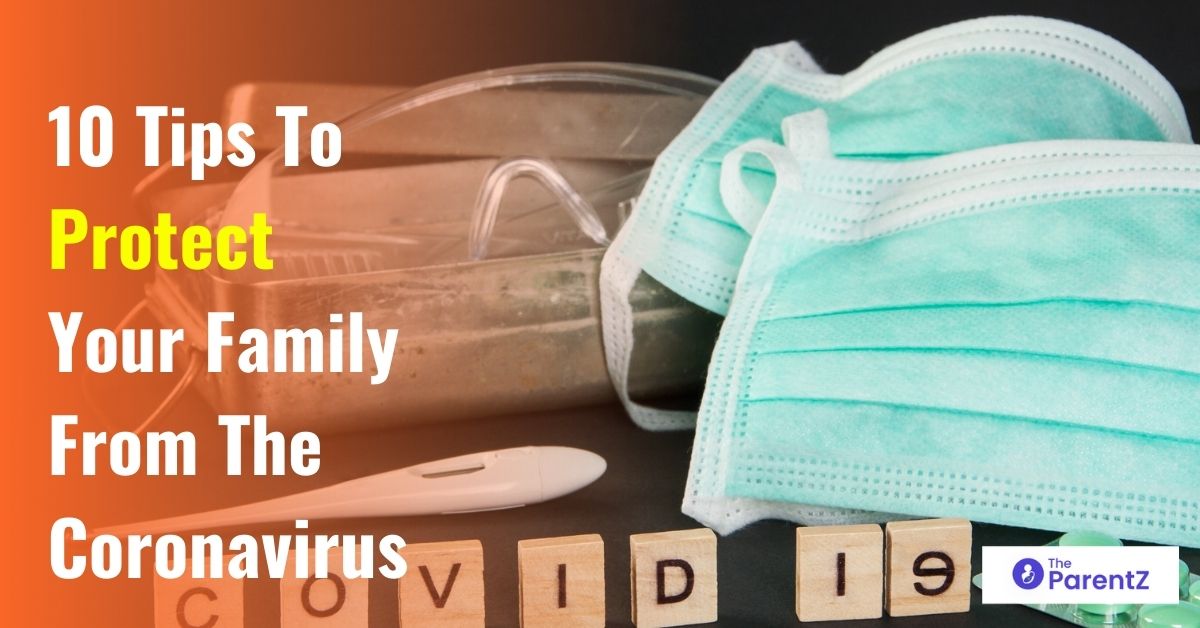


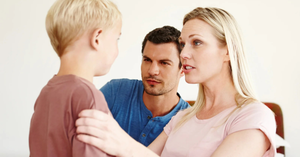
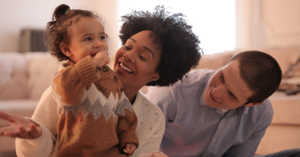

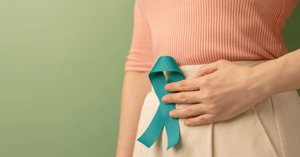
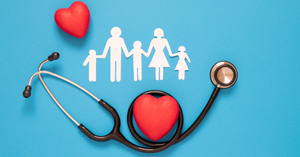
Be the first one to comment on this story.